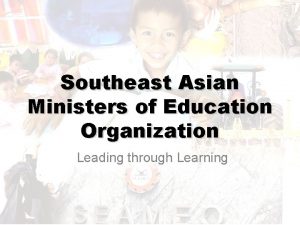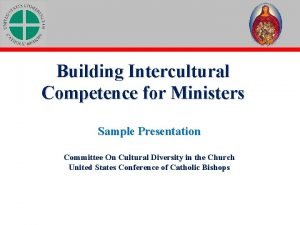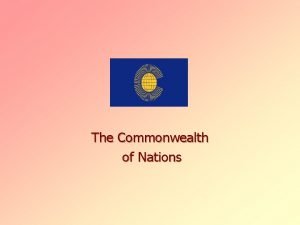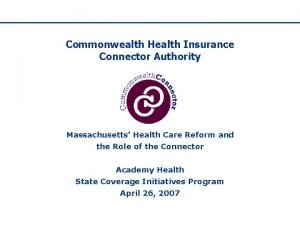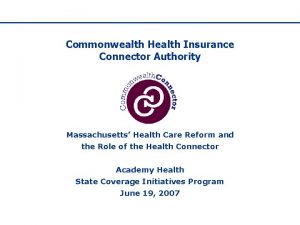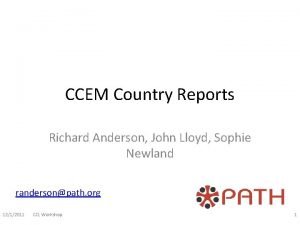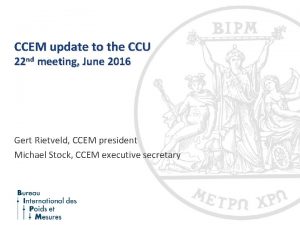th 20 Conference of Commonwealth Education Ministers CCEM






- Slides: 6

th 20 Conference of Commonwealth Education Ministers (CCEM) 19 th – 23 February 2018 Sheraton

Introduction and Background • The Conference of Commonwealth Education Ministers (CCEM) is a high-level meeting held every three years • - Ministers of Education & senior officials from 52 Commonwealth countries • - discuss key issues and engage in meaningful dialogue on education. • -20 th CCEM took place from 19 to 23 February 2018 in Denarau, • Theme: Sustainability and Resilience: Can education deliver? • Concurrently, students, teachers, civil society stakeholders, higher education leaders, youth reps held an IPF (Integrated Partners’ Forum) from 19 – 22 nd

Objectives of the Integrated Partners’ Forum • Main goal is to advance the attainment of inclusive and quality education, promote skills development and lifelong learning opportunities for all • Encourage stakeholders to engage in discussion around the SDGs and post 2015 agenda with their commitments for the next 3 years • Update knowledge and share experience on progress in addressing SDG 4 as well as role of education in addressing other SDGs esp climate change related goals. • Mobilise broader base of stakeholders in support of key challenges through education esp, small states

Expected key outcomes of the IPF • (a) Joint statement outline of policy recommendations and key perspectives from the stakeholders was delivered to the Ministerial Meeting and that Commonwealth Education Ministers may wish to communicate to Heads of Government convening at CHOGM in April 2018. • (b) Increased collaborative dialogue and action among partner groups and stakeholders to achieve sustainable futures through education, and contributing to setting a Commonwealth education agenda, including through new or renewed partnerships. • (c) Actionable suggestions and follow-up actions for the relevant stakeholders in Small States in the overall context of climate change and education for sustainable development.

IPF Joint Statement • The Integrated Partners’ Forum joint statement was written by the Drafting Committee and delivered at the 20 CCEM. Representatives of each of the Partner Groups attending the IPF participated in the drafting of the joint statement which was shared with IPF participants for their comments and approval before being finalised and presented to the ministers of education. • The IPF joint statement for Ministers : • �Integrated the views of all the partners through an exclusive and constructive process • �Was consultative, consensual and respected delivery timeline • �Ensured sharpness and succinct style • �Set 5 recommendations • Composition of the Drafting Committee • �Chair: UK Representative from Commonwealth Teachers’ Group • �One representative from each strand, drawn from Commonwealth countries � • Up to three representatives from Fiji

Papers & Documents • 20 CCEM Thematic Issues Paper (2018) covered theme/sub themes: education for sustainable development, building resilience through education & education governance and management. • SDG 4 Status Update Report – snapshot of education in the 52 Commonwealth countries. • Commonwealth Curriculum Framework for the SDGs – support member countries address the 17 SDGs through education & learning • Commonwealth Education Policy Framework (CEDP) – countries to align their education policies that address the SDGs ie. SDG 4 • Youth Development Index – measures the status of young people in 183 countries around the world – education, health, employment, civic & political participation and informs policy makers about youth needs. • State of Student Governance in the Commonwealth – explored existence of national student bodies and their role/effectiveness
